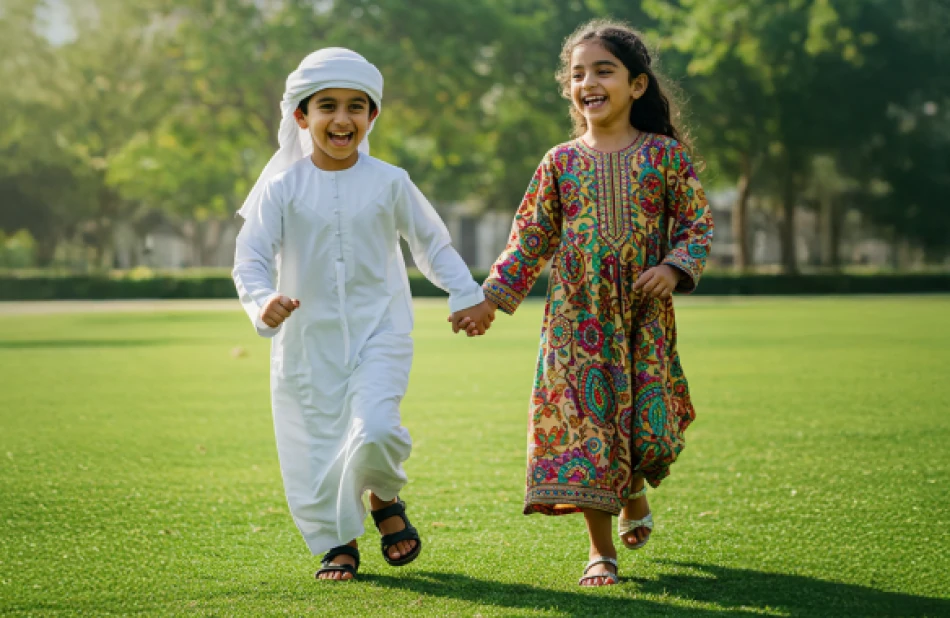
Dubai Adoption Committee Showcases Pivotal Accomplishments in Safeguarding Rights of Children in its Care
Dubai's Child Custody Committee Achieves 98% Court Approval Rate in Landmark Year
Dubai's specialized custody committee has demonstrated exceptional judicial precision, with courts accepting 98.26% of its custody recommendations in its latest semi-annual report. The committee processed 287 cases involving children from 36 nationalities, signaling Dubai's emergence as a global hub for family law excellence and child protection standards that could influence custody practices across the Gulf region.
Record-Breaking Performance Metrics
The committee's comprehensive approach involved interviewing 1,100 parties in custody disputes, conducting 574 criminal background checks on custody applicants, and completing 397 field visits. Additionally, 38 psychological medical reports were prepared, creating what amounts to one of the most thorough custody evaluation systems in the Middle East.
This near-universal court approval rate of 98.26% represents a remarkable achievement in judicial efficiency, potentially setting new benchmarks for family court systems globally. For comparison, many Western jurisdictions struggle with custody recommendation approval rates below 85%, making Dubai's performance particularly noteworthy.
Strategic Vision Behind the Success
Institutional Framework
The committee operates under Decision No. 7 of 2022, issued by Sheikh Maktoum bin Mohammed bin Rashid Al Maktoum, Dubai's Deputy Ruler and Chairman of Dubai's Judicial Council. This high-level backing demonstrates Dubai's commitment to positioning itself as a leader in family law innovation.
Dr. Saif Ghanem Al Suwaidi, Director of Dubai Courts, emphasized that the committee reflects Dubai's comprehensive strategic vision placing human rights at the forefront of developmental priorities. This approach aligns with Dubai's broader transformation into a global city that attracts international families and businesses.
Multi-Agency Collaboration
The committee's success stems from integrated cooperation between judicial, police, health, and educational authorities. This holistic approach mirrors successful models in Singapore and the UAE's federal system, where cross-institutional collaboration has proven essential for effective governance.
Market and Investment Implications
Dubai's sophisticated family law system represents a significant competitive advantage in attracting international talent and investment. Expatriate families and multinational corporations increasingly consider legal frameworks when making relocation decisions, particularly regarding child welfare and family stability.
The committee's high success rate suggests Dubai has created a predictable, professional legal environment that reduces uncertainty for international families. This stability factor could prove crucial as Dubai competes with Singapore, Hong Kong, and London for global financial services and expatriate professionals.
Regional Leadership and Global Standards
Digital Innovation Integration
Ahmed Abdul Kareem, Chairman of the Custody Committee, highlighted the integration of modern technologies including digital transformation and advanced analytical tools. This technological approach accelerates assessment procedures while ensuring more accurate decision-making.
The emphasis on digital solutions positions Dubai ahead of regional competitors and aligns with global trends toward technology-enhanced judicial systems. Countries like Estonia and Singapore have demonstrated how digital governance can improve both efficiency and citizen satisfaction.
International Benchmark Potential
With children from 36 nationalities involved in cases, Dubai's system effectively handles complex international custody disputes that increasingly characterize global metropolitan areas. This multicultural competency could establish Dubai as a preferred jurisdiction for international family law matters.
The committee's comprehensive evaluation methodology—encompassing social, psychological, health, and criminal assessments—creates a template that other emerging legal hubs might adopt. This could enhance Dubai's soft power influence in legal and governance spheres.
Future Trajectory and Sustainability
The committee's commitment to developing innovative solutions and implementing proactive initiatives suggests Dubai is building long-term institutional capacity rather than achieving short-term metrics. This sustainable approach indicates the emirate's serious intention to maintain leadership in family law excellence.
As global mobility increases and international families become more common, Dubai's proven system for handling complex custody cases positions it advantageously for continued growth as a preferred destination for international professionals and their families.
Most Viewed News

 Sara Khaled
Sara Khaled






